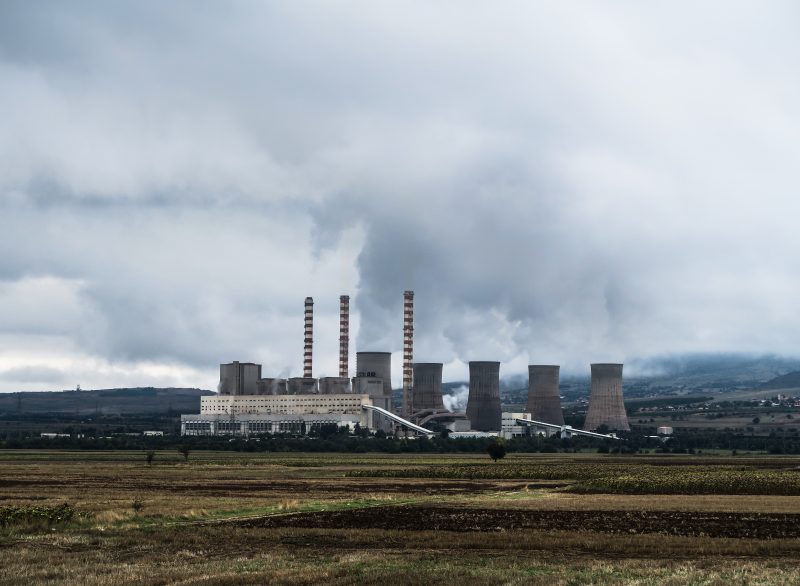What’s happening with deregulation in the states you cover?
Rich Cossell (National Representative, Region III) – We are experiencing the effects of deregulation in Ohio with FirstEnergy and AEP. And in Pennsylvania, there’s discussion about restructuring, or re-regulating, because there has been a tremendous amount of generation assets shut down or sold off to private equity firms.
Because natural gas prices are so low, they are saying they can’t compete. With deregulation, the vertically integrated companies had to separate their assets and operate them horizontally and the generation companies are not profitable. They are dragging down the rest of their business model. They are making money on transmission and distribution. But, nothing is coming out of generation.
Jim Harrison (Senior National Representative, Region IV) – We’ve got an energy bill in Michigan that’s been languishing for over a year now, with much of the debate centering on whether or not to deregulate more of the energy market which impacts generation. In upstate New York, they’re trying to keep nuclear alive through subsidies. And in Illinois, the Governor has signed a bill to recoup assets of two coal plants and a nuclear plant.
The discussion centers around the question: in deregulated states, how is the system going to be maintained if utilities don’t know if they’re going to recover money when they invest in distribution and generation?
Utilities with coal and nuclear assets are bleeding money and they are in debt because it’s unprofitable. So, you either shut it down or find somebody to sell it to. When they are shut down, there is not enough baseload generation from renewables, and this has an impact on the reserve margin and reliability. Low natural gas prices allow people to say deregulation is working. But, what happens when the price of natural gas rebounds? We’re really going to be in a heck of a mess.
Ed Good (Legislative Director) – If you look at those who pushed deregulation the hardest, they are the same ones who are crying foul now because they haven’t seen the profits that they thought they were going to.
Daniel Hurley (Senior National Representative, Region I) – In 1997, the Massachusetts Legislature enacted a comprehensive electric restructuring law with the intention of creating a competitive electric-supply market that would lower consumer electric rates and still provide for a reliable source of energy. However, these promises have come up short for consumers and workers alike.

How are UWUA members affected by deregulation?
Cossell – The utilities model right now is to try to do more with less. They are trying to go as bare bones as they can on staffing. So you have layoffs, overtime increases, work related stress increases.
Harrison – When we talk about deregulation, what gets lost is the worker. What happens in the communities when those plants close? No one really talks about that.
What happens when utilities sell generation assets? There goes your contract unless you have very strong successor language. You get screwed. All your vested benefits, health care, pension, go down the toilet.
Hurley – When the utilities in Massachusetts were forced to sell off the generating facilities, the new owners were bound to uphold the terms and conditions of the “utility” collective bargaining agreements because of the strong successor language that existed, even though they were not utilities anymore. However, when the contracts expired, the new owners rewrote the entire contracts; that resulted in major concessions by the workers.
How has deregulation affected national security?
Cossell – No new money is being spent to replace the amount of generation that is closing. That’s affecting grid reliability. That’s a national security issue. Every utility used to have a Black Start plan on file with FERC to ensure reliability in an outage. As a result of deregulation, you don’t have them anymore.
Good – Grid reliability is not an issue for utility executives until something happens like the 2014 Polar Vortex or the 2003 blackout. Because generation is deregulated, they don’t have the responsibility to consumers to ensure the system is reliable anymore.
Hurley – If we don’t have the generation we need to sustain our businesses that provide vital resources, such as armaments to our armed forces, we inevitably are at risk. In Massachusetts, the scheduled shut down of the Pilgrim Nuclear Power Plant, Brayton Point and the multiple units already shut down poses a clear and present danger to the defense industry and others in Massachusetts.
How have consumers and communities been affected by deregulation?
Cossell – So many things have come to pass as we said they would back in 1997. And, some have come to pass worse than we even thought they would. Take the Polar Vortex – gas generators refused to kick up their load. Utilities were so afraid of losing the system that we had one in Pennsylvania tell their industrial customers, “you will drop load or you will be dropped period.” The grid was within hundreds of megawatts of going down.
The generators told regulators, “If you don’t lift the price per megawatt, we’re not going to generate more power.” The government caved and the price went to $2,500 a megawatt.
Good – Another way communities are affected is through the loss of their tax base. Before deregulation, if you had that powerhouse or wires in your community, property taxes were collected from them. Deregulation laws in some states reduced electric utility personal property taxation from 25% down to zero. These cuts affected local government services like road maintenance, schools, parks and health districts.
Harrison – In those states that have deregulated or have some kind of mixed market, a lot of government intervention has been required. That’s because low prices have affected reliability and the lives of people.
Hurley – When a facility closes that employs hundreds of people, the community is directly affected. The restaurants that provide breakfast and lunch, the hotels that provide rooms for months for contractors working during overhauls and, last but not least, the taxes and money paid in lieu of taxes by these companies will not exist for these communities. This could result in layoffs to fire, police and teachers.

What can members do to help protect their jobs and communities?
Cossell – Members affect change. As staff, we can only do so much with legislators. When we go to their offices, they want to know how many members are in their jurisdiction and they want to hear from them.
Harrison – Be vocal. Make sure officials know what your jobs are and how important they are to the local economy.
Good – The National Union works hard to educate our members on issues and candidates that affect our members, families and communities. Deregulation is a good example of how members are affected by results of elections and anti-worker policies.
Hurley – Talk to your elected officials, tell them that deregulation is a bad idea. If they don’t listen, then vote them out of office or run against them. Start a group to oppose this idea and use social media to spread the word.

